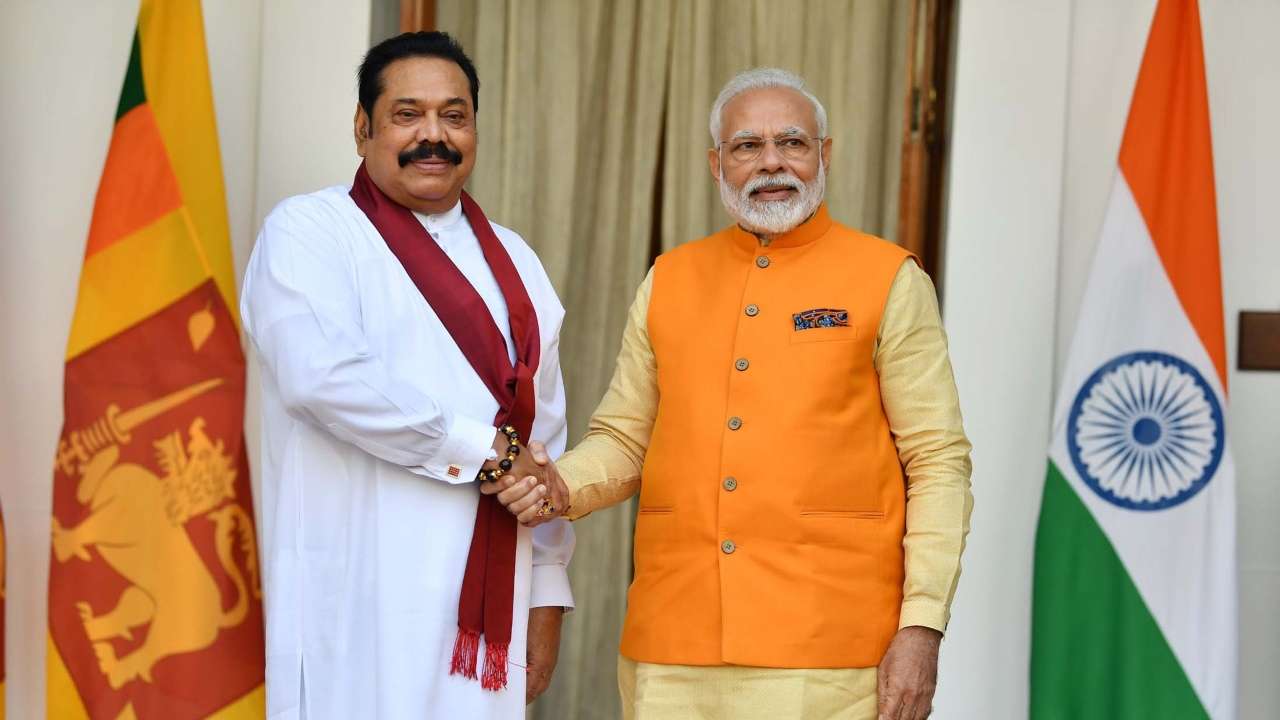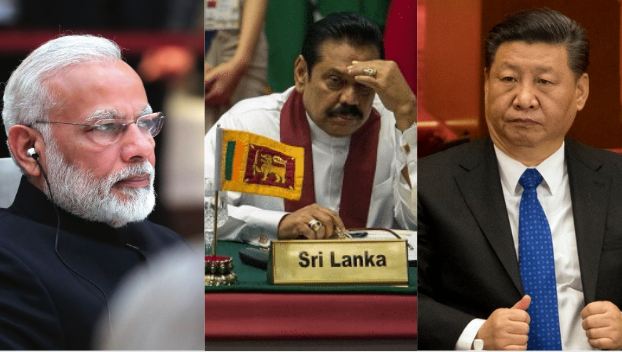Sri Lanka thought that it can manage both India and China. The Rajapakshas were thinking too highly of themselves and in this false sense of superiority, they have ended up red-faced in the United Nations Human Rights Commission (UNHRC). India on Tuesday abstained from voting on a resolution against Sri Lanka adopted by the United Nations Human Rights Council in Geneva today against the island nation’s human rights record.
The resolution is a huge setback to Colombo even though it made concerted efforts to garner international support ahead of the voting. The Sri Lankan government flirted with the idea of managing both India and China. And by showing the carrot to both the countries, milk the most out of them. However, this exercise has turned out to be counterproductive as Sri Lanka misjudged PM Narendra Modi’s goodwill. The Sri Lankan government’s flip flop policy on China has left Sri Lanka with a serious UNHRC defeat as India refuses to back it at the UN.

Earlier just as it appeared that Sri Lanka was beginning to mend its ways by adhering more and more to the Indian side and decoupling itself from the Chinese clutches, Colombo’s actions of flipflop present a strong argument why it still cannot be completely trusted by New Delhi. The trilateral Eastern Container Terminal (ECT) project between Sri Lanka, Japan and India was cancelled by the Gotabaya Rajapaksa cabinet in early February according to media reports. The state-owned Sri Lanka Port Authority will now own and manage the East terminal entirely (SLPA)
Colombo had previously stated that the port would be 49 per cent operated by India and Japan with SLPA retaining the majority stake. The said agreement was first signed by the former Maithripala Sirisena-Ranil Wickremesinghe administration. Instead, the two countries will now be invited to develop the nearby West terminal on a public-private partnership basis.
These flipflop policies on China and overestimating its geopolitical abilities can be the logical reasons why Sri Lanka has not found India supportive of its cause in UNHRC. The resolution titled “Promotion of Reconciliation, Accountability, and Human Rights in Sri Lanka” was adopted by the UNHRC after 22 out of 47 members voted in favour of it; 11 voted against it. India was one of the 14 nations that did not vote.
“India believes in the primary responsibility of States for the promotion and protection of human rights and constructive international dialogue and cooperation guided by the principles and purposes of the UN Charter in support of such efforts. As an immediate neighbour, India has contributed to the relief, resettlement, rehabilitation and reconstruction process in Sri Lanka after 2009,” India said in its statement.
India’s Statement at the 46th Session of the Human Rights Council before the vote on its consideration of the resolution “Promoting reconciliation, accountability, and human rights in Sri Lanka”.#46HRC@UN_HRC @MEAIndia @IndiainSL @SLUNGeneva @IndiaUNNewYork pic.twitter.com/La4zzIGYVx
— India at UN, Geneva (@IndiaUNGeneva) March 23, 2021
India, under the leadership of PM Narendra Modi, has made it clear to Sri Lanka that it should not misunderstand India’s goodwill for any geo-strategic inability. And by abstaining in the UNHRC, India has told the Rajapaksas that India will only support Colombo if it shows genuine inclination towards India and remains a good neighbour.
























Almost all of the India’s immediate neighbors are taking granted of India’s goodwill and using us for their benefits and never reciprocated any help in return. The time has come for India to taught the lessons to the backstabbers.